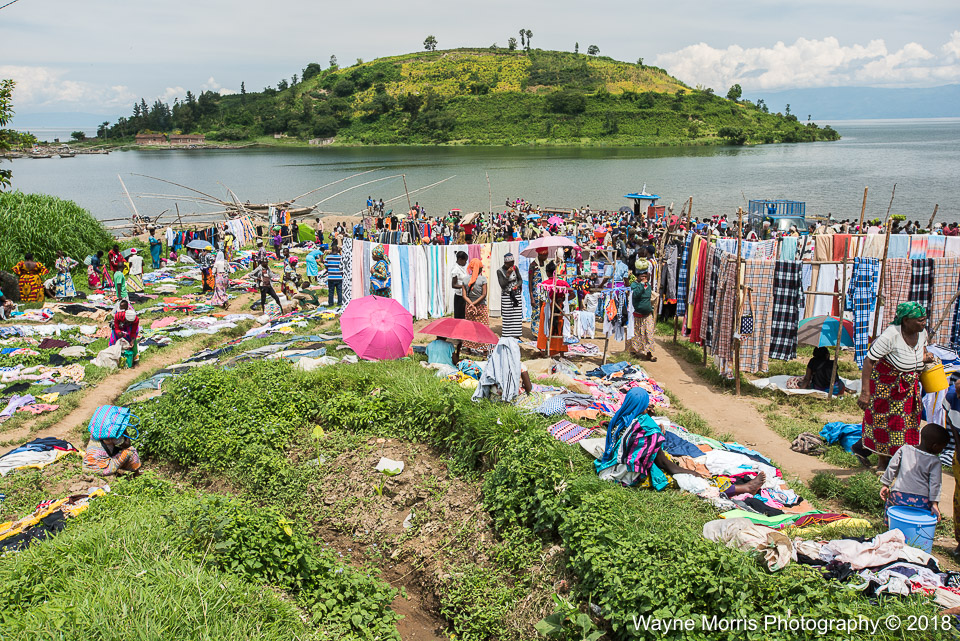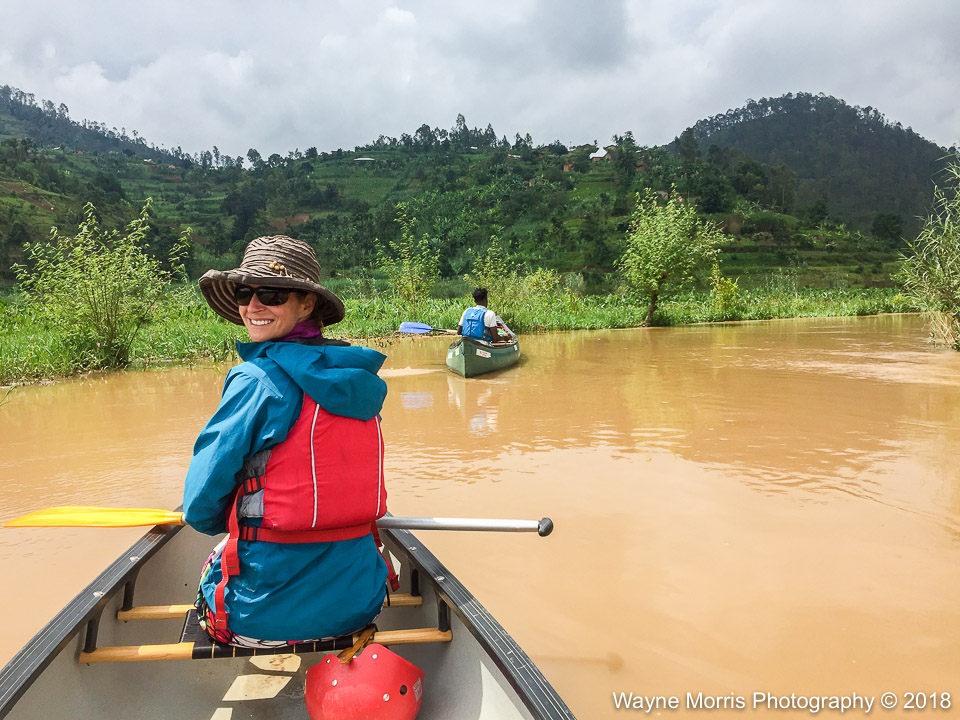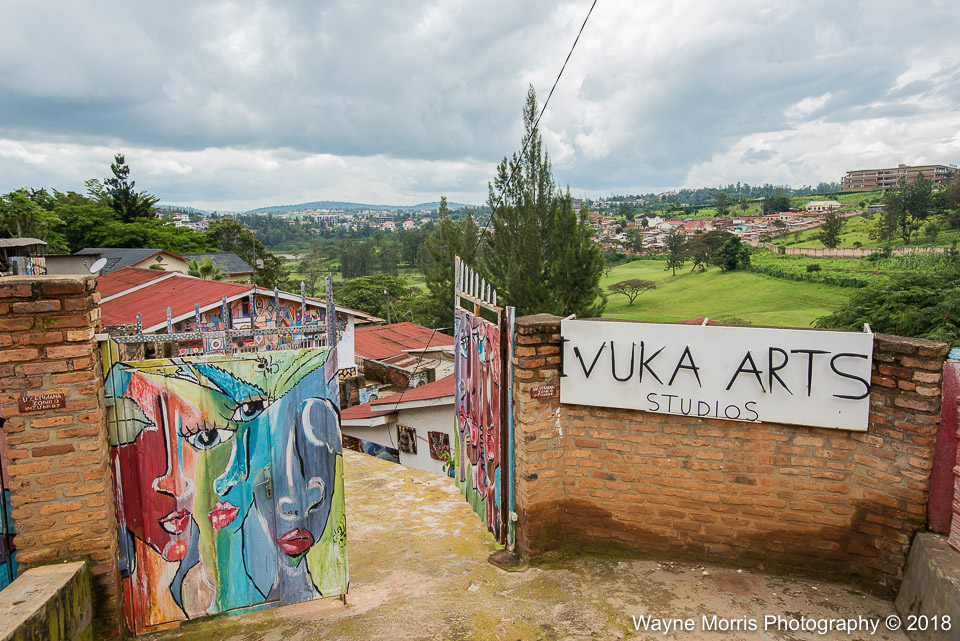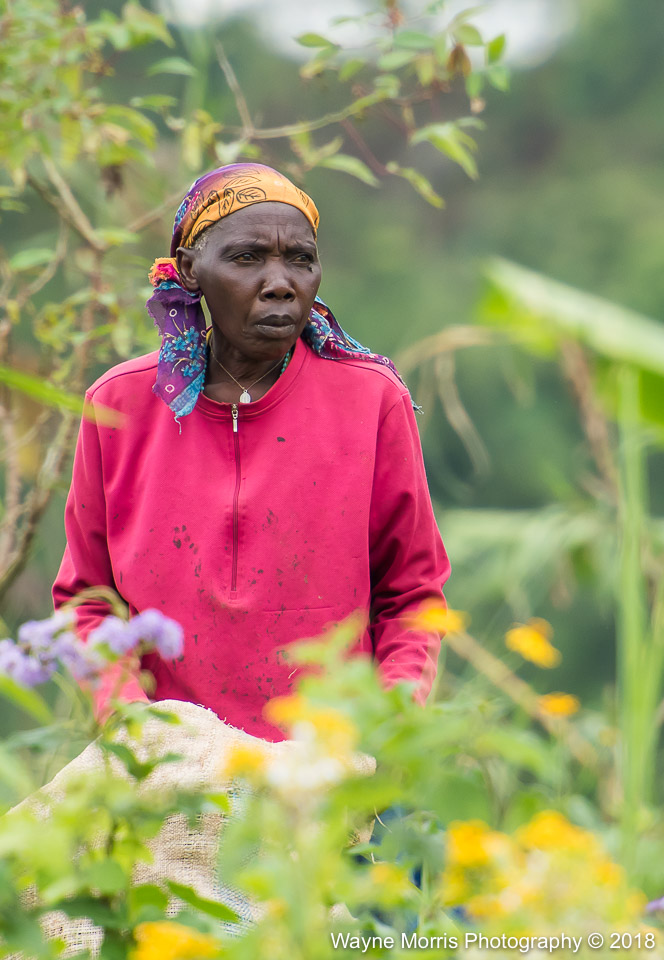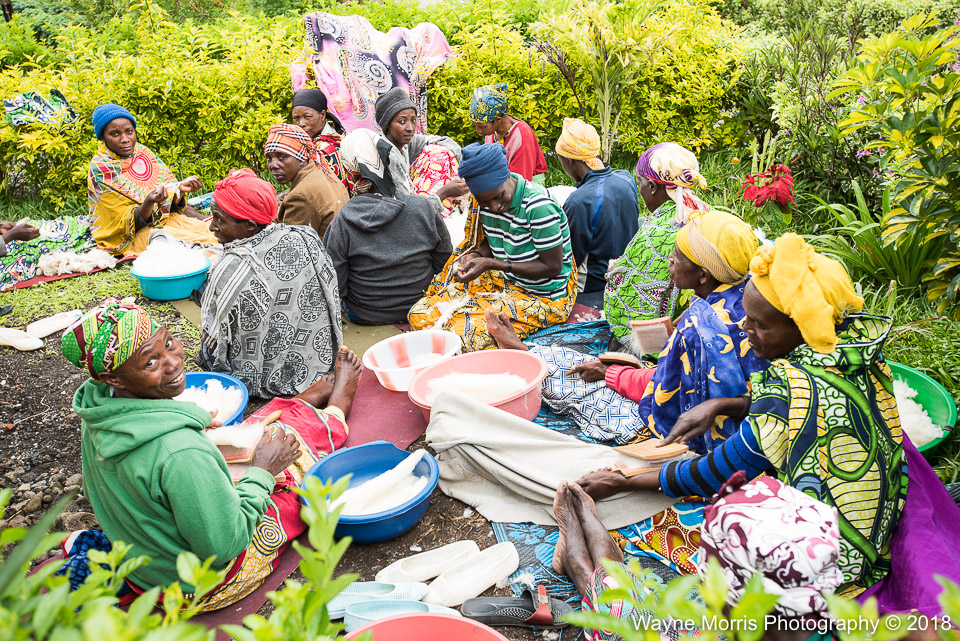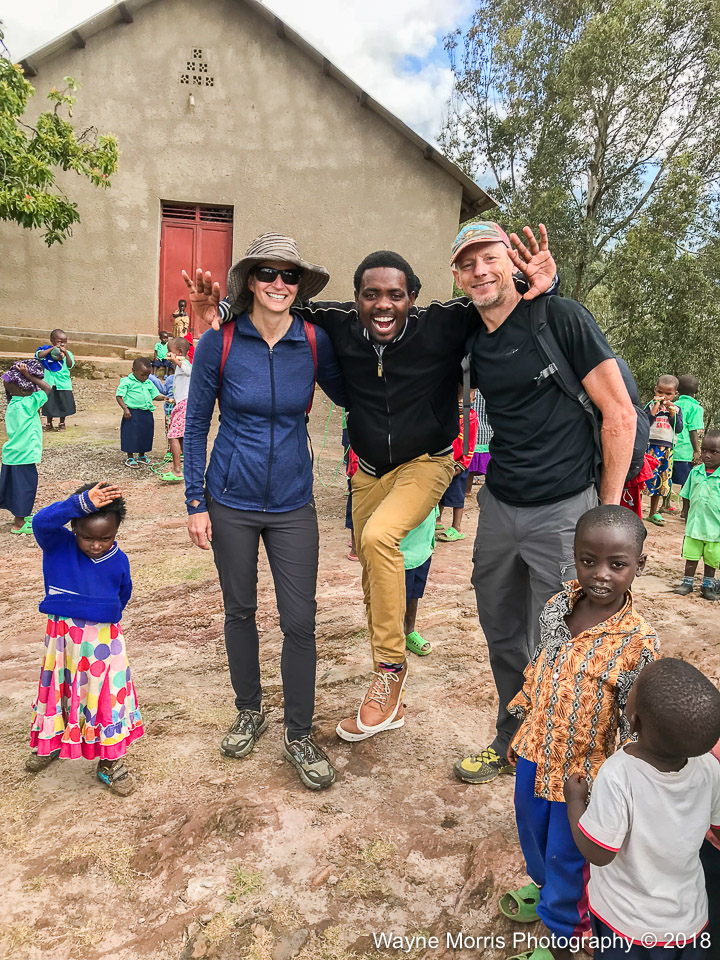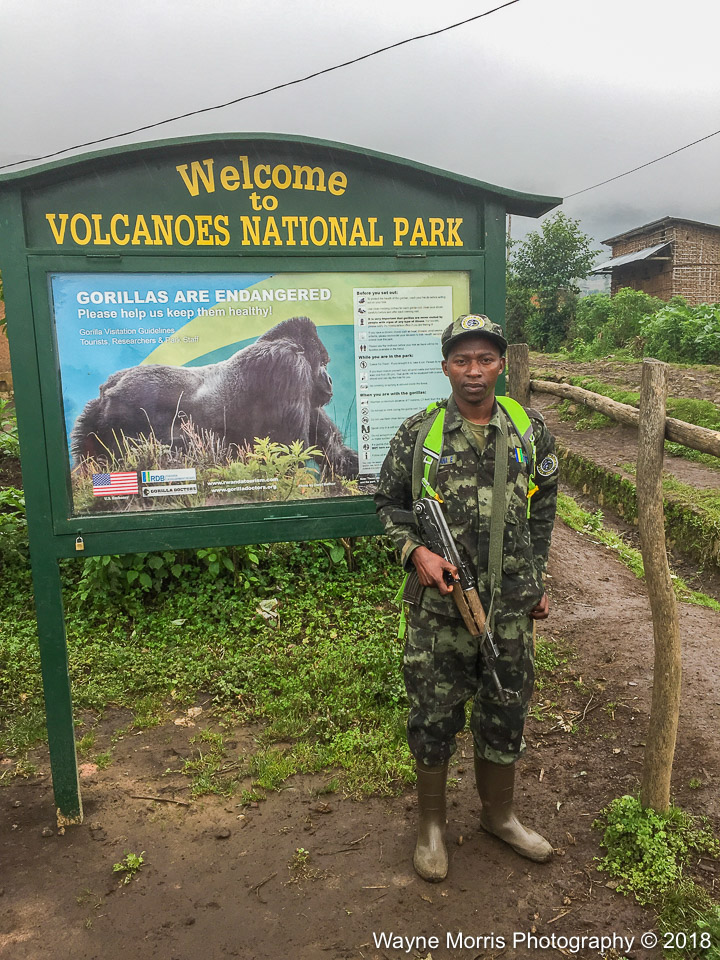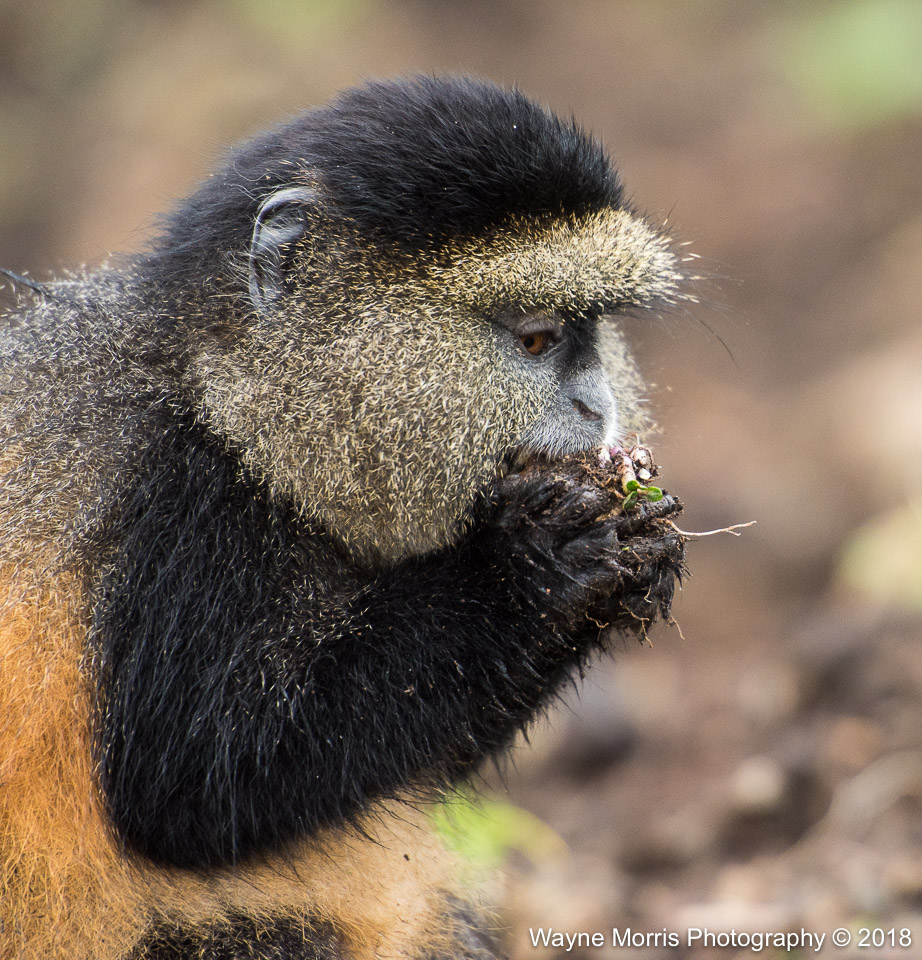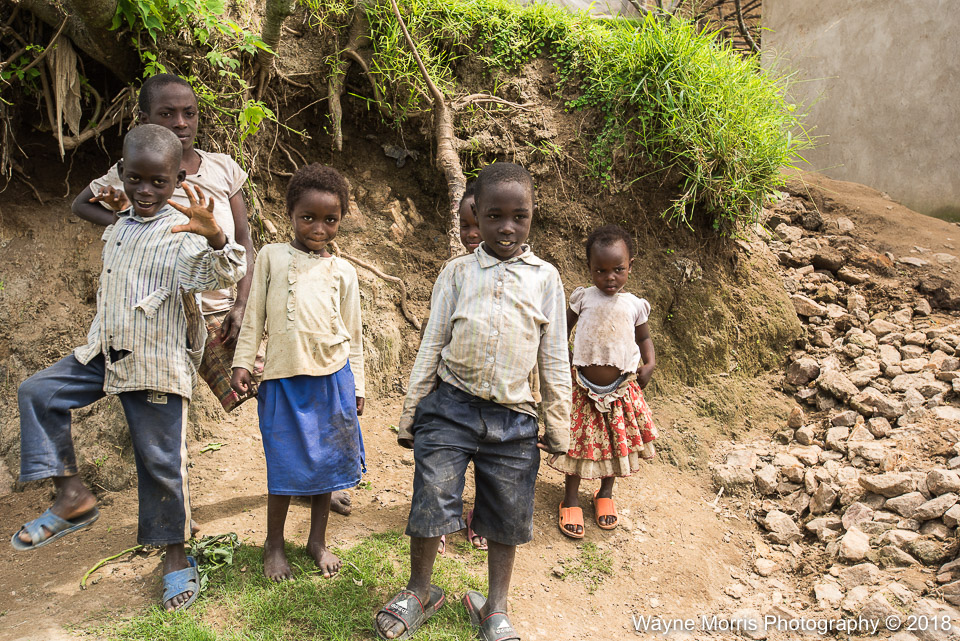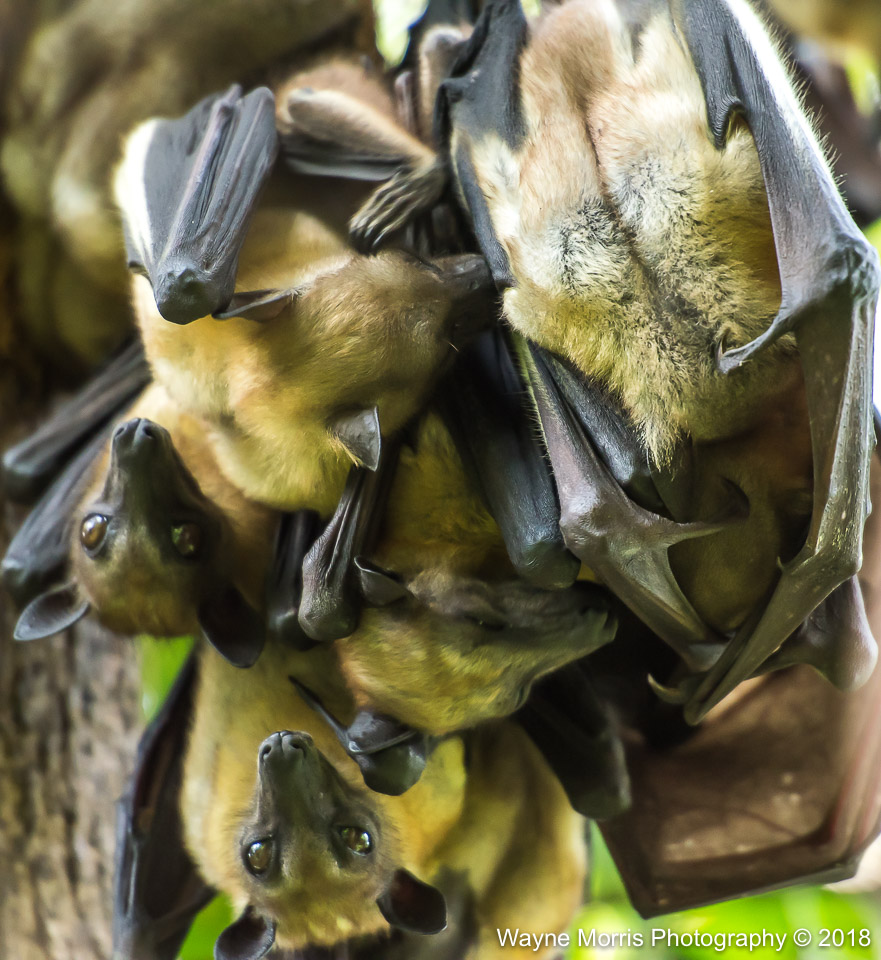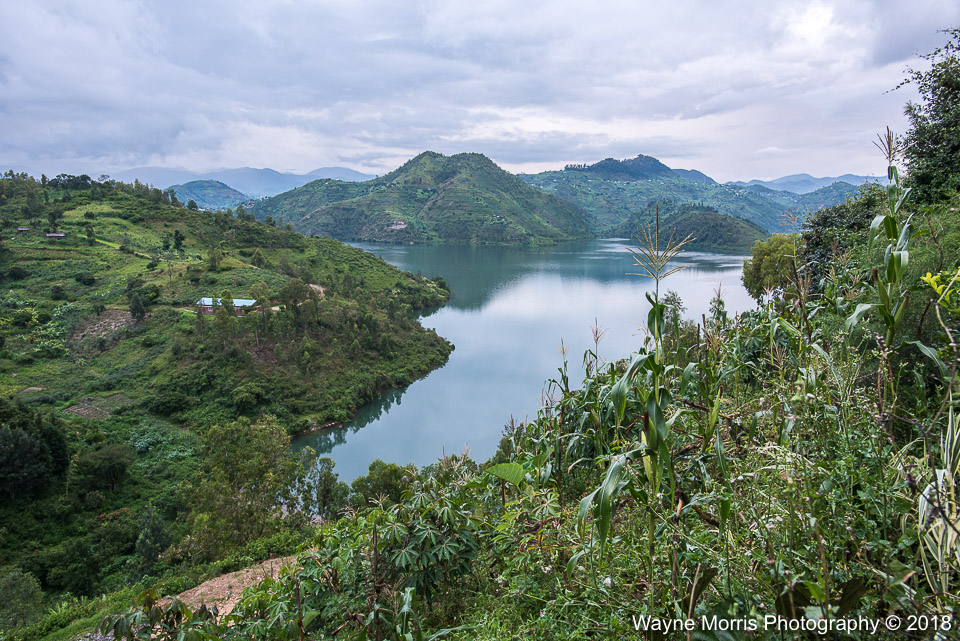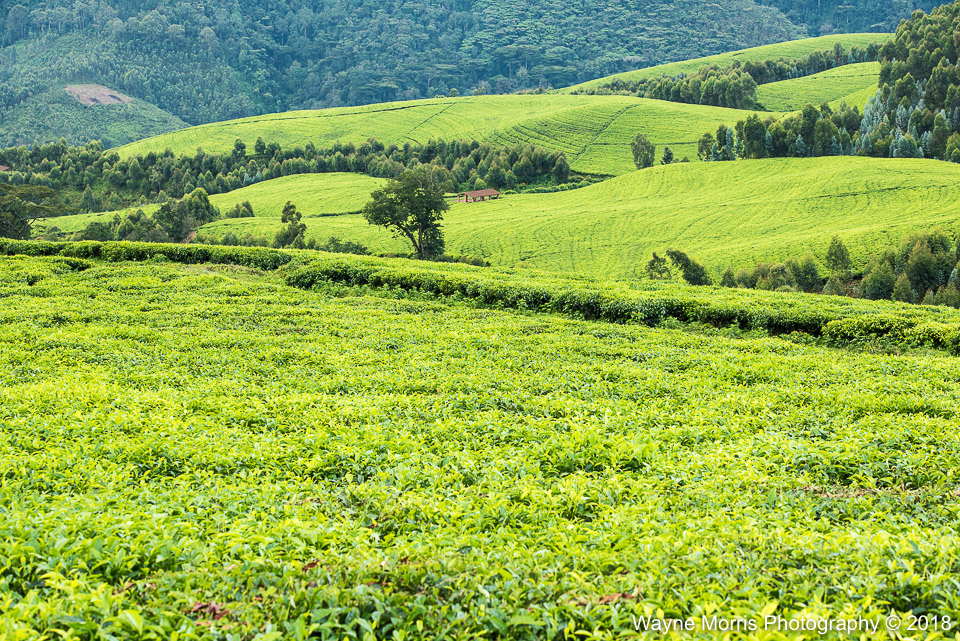Our arrival into Kigali’s small but modern airport late in the evening made us slightly apprehensive, mostly due to us having no idea as to the safety nor location of our accommodation. That was good enough reason to take the Ivuka Art Gallery transportation. Twenty Dollars for the 7km ride would turn out to be an absolute ripoff after quickly learning that we could ride on the back of a motorbike, sometimes carrying backpacks and daypacks for between 40c and $2. Moto’s would become our preferred method of transportation throughout Rwanda. Little did we realise how much the small but populous republic would grow on us over our three week visit.
Moto’s in Rwanda became our transportation of choice
To begin with it definitely felt slightly overwhelming to be visiting a country with few other tourists or backpackers, and a violent history – our attitudes changing quickly as we got to understand its past and see just how friendly the Rwandan people are. Incidentally we do still consider ourselves backpackers! We had no choice to accept the fact that we stood out; both children and adults would continually refer to ‘the mzungus’ as we walked down the street or sat amongst them on cheap public buses. On one occasion a cute girl no more than 2 years old smiled to us from a few rows away before uttering something about mzungu to her mum (and everyone else on the bus) – whatever it was must have been funny as the entire bus turned to look at us laughing!
Our time in Rwanda saw us exploring the capital of Kigali, chilling at Gisenyi and Kibuye along the shores of beautiful Lake Kivu, knee deep in mud hiking Mount Bisoke, golden monkey and chimpanzee tracking, kayaking in Musanze and learning a lot about the countries recent history.
Kigali
As with all other African capital cities there is a certain buzz going on in Kigali, a vibrancy as people from all walks of life seem to be in the streets; making a living, discussing life, zipping around on moto’s, and all smiling. From affluent areas with its foreign embassies to wooden shacks for the not so-well-to-do the city always felt safe, a little edgy sometimes, but wherever we went there was never any indication that people were anything other than helpful. We enjoyed it enough that we stayed over a few extra nights on the backend of our trip.
Our favorite coffee haunts for chilling out were the Inzora Rooftop Cafe in the embassy district, Kigali public library with its Shokola Storytellers Café, and if a Starbucks type chain is more your thing then Bourbon Coffee with its numerous locations. Dining out is usually taboo for us whilst traveling on a budget but having no cooking facilities for a few nights lead us to Repub Lounge on more than one occasion and Khana Khazana for a good Indian dinner.
Public transportation was excellent, with cheap moto’s by the thousands, bicycles for the even more budget conscious, taxis, and buses that covered the entire country and beyond. Our long haul experiences were taking the efficient Kampala bus from the central station across the Ugandan border to Kabale, and an extremely uncomfortable ride from Gisakura in the south west of Rwanda to Kigali – Google has this as 5 hours by car but it probably took double that by local transport. International buses are definitely far more comfortable than the local in-country sardine packed variety!
Ruhengeri (Musanze)
After a brief trip to see the mountain gorillas of Uganda our return bought us to Ruhengeri in the north of the country. This is the jumping off point to Volcanoes National Park, home to approximately 10 habituated mountain gorilla families, golden monkeys, and the tomb of the legendary Dian Fossey. The cities proximity to the Virunga Mountains allows plenty of hiking to the summits of eight volcanoes, with Mount Nyiragongo just across the border in volatile DRC being the bubbling lava filled animal with attitude. We had planned on throwing caution to the wind and spending a weekend trekking to the crater rim on Nyiragongo but at the same time a kidnapping occurred when a couple of British tourists were taken away into the forest and their guide killed – they were later released unharmed but all visas allowing access to this part of the Congo were revoked and Virunga was temporarily closed!
Ruhengeri itself provided everything you’d expect in a reasonably sized city but didn’t have a lot to offer tourists; a couple of half decent restaurants, cafes, and a cheap market for locally produced fruit and veg. Lots of small shops and stalls offered tailoring, great for me to get a trouser repair and for us to have an enormous bean bag sewed together out of various pieces of brightly patterned fabric, very typical of Africa and usually seen as dresses on women everywhere.
Outside of town was a different experience, with us spending a half-day out on kayaks with the highly recommended Kingfisher Journeys, and making numerous visits into nearby Volcanoes National Park. The park headquarters was an 11km drive from Ruhengeri in the small town of Kinigi, easy to get to on a moto, except all the activities required the paying customers to also get the guide and often armed guards to specific trailheads. We hooked up with a guy offering his services at the local bus station and instead of paying the going rate of $100 USD for the transfer and all the waiting around they have to do we negotiated a rate around half that.
Having already seen gorillas our goal was to bag at least one of the Virunga volcanoes and hopefully see endangered golden monkeys. Not too much to ask for. Within an hour of hiking, right on the edge of the forest we came across recently harvested potato crops, and scattered throughout the fields rummaging through what was left were hundreds of amazingly coloured monkeys – they looked spectacular and didn’t care that a dozen or more people had just encroached on their mid morning snack. As usual we were permitted an hour with them, the youngsters up to mischievous antics and the plump looking adults sitting chowing down on the most succulent potatoes. Then in the blink of an eye the entire troop headed off into the bamboo forest.
Not quite as mellow as the golden monkeys but equally as satisfying was the hike up to Mount Bisoke, a 12,175 ft active volcano with a crater lake that sits half in Rwanda and the other half in the DRC (this was probably the reason we had a dozen armed soldiers with us). I was all about having a crack at the other tougher more remote volcanoes but with the muddy conditions were warned that summiting might not be a possibility – Bisoke it would have to be. Probably the right call as the trail gradually became almost knee deep in thick mud. Andrea made the best decision to pay $5 and utilise rubber boots whereas I chose to ignore the advice as they are not the easiest of footwear to hike long distances in. Tiptoeing around the mud was possible in the lowlands but it wasn’t long before it was easier to just suck it up, get stuck in and pay for cleaning later. Due to conditions this was a fairly strenuous hike but with the weather gods deciding not to soak us, even providing a little summit sun, made for a fun day in the forest. From what we had heard seeing mountain gorillas for free was also a possibility.
Lake Kivu
Lake Kivu straddles the border between Rwanda and the DRC (Democratic Republic of the Congo), providing miles of scenic shoreline, islands sprouting up from the lakes depths, singing sambaza fishermen, and recently providing energy from the massive buildup of dangerous methane gases in its depths.
Rwanda’s ‘Singing’ Fishermen on Lake Kivu, hills of the DRC in the distance
Moving further along the lake our next stop was Kibuye, smaller and sitting in a perfect location 3 hours south. We were spoilt for accommodation options, some being far too upmarket for our budget, so settled with a couple of nights at the basic Rebero Kivu Resort and a night at Moriah Hills Resort.
Looking out towards the lake we were rewarded with rolling hillsides, inlets, islands and as sunset approaches, fishermen heading out for an evenings catch. It was the latter that was most special. The fishermen head out into the deep waters of the lake in groups of three wooden boats, singing rhythmically to time their paddle strokes and give encouragement to each other – the best way to really be in the midst of this tradition is to be on the water with them, for us the next best thing was to carefully listen from the shore. Not confined to Kibuye these melodic fishermen leave from villages all along Lake Kivu’s shoreline.
Being located on the lakeshore the obvious attraction is the lake itself, the calmness of the waters ideal for swimming and taking a local boat excursion out to the various islands. Islands such as Napoleon with its fruit bat population, Amahoro, a developed island for tourism, and even an island that’s home to only a couple of vervet monkeys. Andrea chose to swim the final few hundred metres back to shore during our excursion, the warm water very inviting but possibly not too safe with the massive concentrations of carbon dioxide and methane.
Chimpanzee Tracking
Our final primate tracking would have to be with the charismatic chimpanzee, totally unlike the gorilla or golden monkey due to the difficulty of getting up close and personal. More often than not they are located high up in the tree canopy, preferring to eat and not wait around for us humans to photograph them!
For this experience we took a pubic bus south from Kibuye to Cyangugu, then another on to Gisakura, with motos taking us the last few kilometres to Nyungwe Forest National Park. Our actual tracking experience would take place in the forest annex of Cyamudongo – this smaller location is typically chosen for the tracking due to the relative ease of locating the 30 member troop. Nyungwe Forest itself is huge and the terrain offers less chances of seeing any chimps. As with the mountain gorillas once we sighted and made contact with them we were given an hour to try and keep up whilst they leapt about screaming and feeding high up in the trees. This was a little less enjoyable than other primate encounters but still definitely worth the $90 per person permit fee.
If you’re not into primates another good reason to visit this lush part of Rwanda is its tea. Areas within and around Nyungwe are all about growing Rwanda’s largest export, the vivid green plantations covering vast tracts of land – sadly, probably once full of chimps and gorillas. Hikes and birdwatching tours are also available in the park, both of which can be reserved through the Irembo website. We opted to take a guided hike to a tropical waterfall, something we could easily have done ourselves for free if we had know where to go!
Accommodation reservations, at least if you want to go cheap, were not the easiest to make – we only stayed in the area for a couple of nights, our first being in a rustic $50 private room at Nyungwe Guesthouse and second at Gisakura Family Hostel in the small town itself. Both of these options are very reasonably priced but trying to get hold of anyone to check on availability wasn’t easy! We would have preferred both nights at Nyungwe Guesthouse as it was pretty much in the forest but being completely full on the second night meant we had to head into town. Public buses leaving the area for Kigali were for us, reliable if not painfully uncomfortable. We had reserved seats, unfortunately these being the fold down relics that had seen far better days, in the aisle with backpacks somehow stuffed underneath. Getting off the bus many hours later in Kigali didn’t come soon enough!
Our final nights in Kigali were spent at Yambi Guesthouse, a great $54 a night find in the city’s Gikondo area (private room including breakfast and kitchen access). A block away is the Talking Through Art gallery, a nonprofit organisation focused on creating art-related employment opportunities for people with physical disabilities. They sell some really well designed and colourful traditionally woven baskets. As usual motos were available to whisk us anywhere we wanted to go, including the airport with backpacks and daypacks on our day of departure.
Permits
Golden Monkey tracking: Half-day, Cost: $100 pp
Mount Bisoke hike: Full-day, Cost: $75 pp
Tropical waterfall guided hike: Half-day, Cost: $50 pp
Chimpanzee tracking: Full-day, Cost: $90 pp
SIM Card & Coverage
Carrier: MTN, Usage: 16GB, unlimited SMS, unlimited mins
Cost: $37
Transportation
Arrival/ Departure: Lusaka <-> Kigali, Carrier: RwandAIR, Cost: $397.58 pp
Dates
April 29th – May 23rd 2018
IMAGES
I think that with trial and error both my photography and website design are getting progressively better so hopefully these newer, better quality images will inspire you to get out there and travel. Click HERE to see more and if you like the content then feel free to comment.


